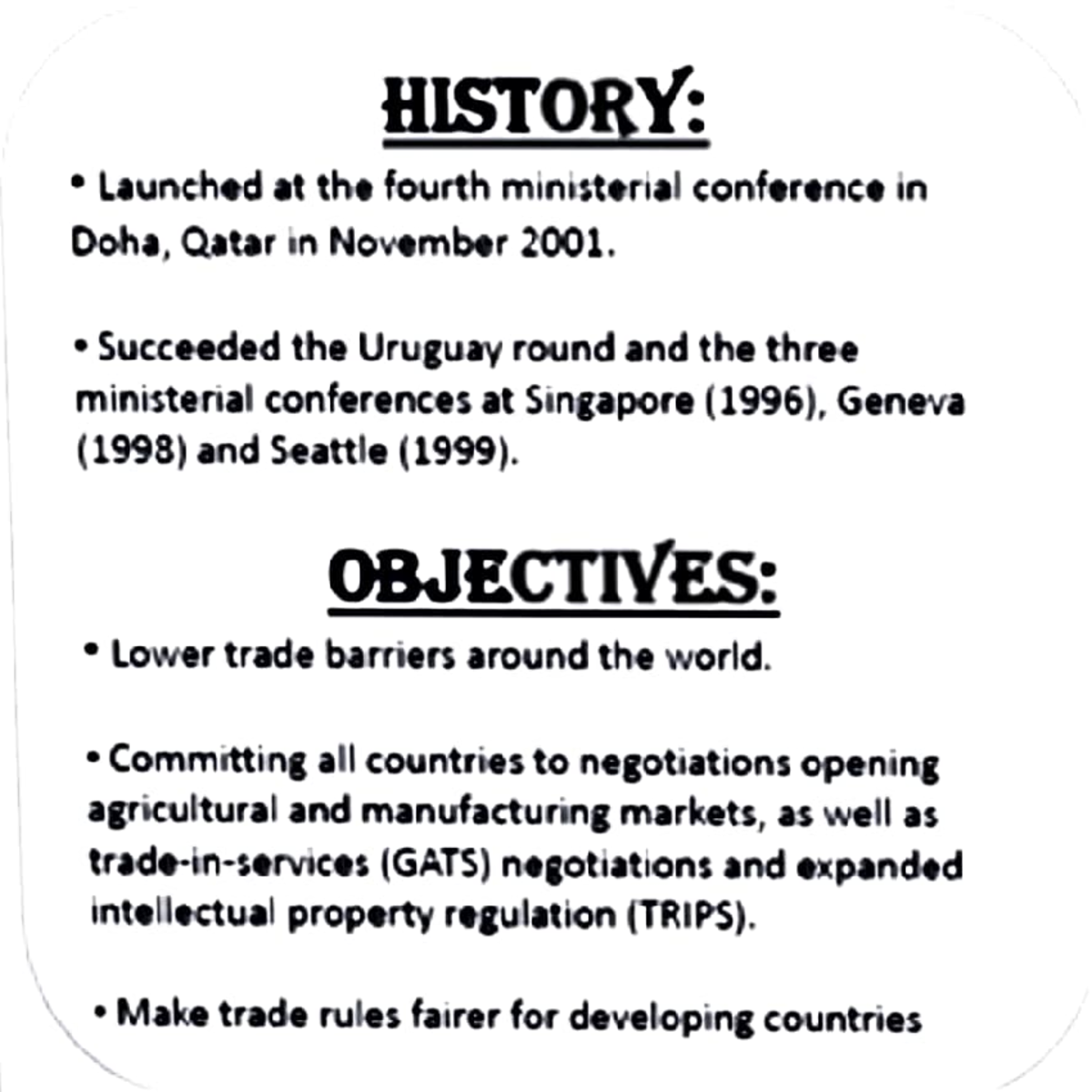Carolien Spoor: Unraveling The Complexities Of International Trade Law" — A Guide for Professionals, Students, and Business Leaders

Carolien Karthaus-Spoor over haar passie voor golf • Golf.nl - Source www.golf.nl
Editor's Notes: "Carolien Spoor: Unraveling The Complexities Of International Trade Law" have published today publishing date. Given the burgeoning global economy and the increasing interconnectedness of the world's markets, understanding international trade law has become more important than ever.
Our team has been carefully reviewing international trade law topic and we put together this guide to help target audience make the right decision.
Key Differences:
| Key Differences | Carolien Spoor: Unraveling The Complexities Of International Trade Law |
|---|---|
| Target Audience | Professionals, students, and business leaders |
| Content | Comprehensive analysis of the complexities of international trade law |
| Benefits | Helps readers understand the legal framework governing international trade, provides insights into the challenges and opportunities of global trade, and offers practical guidance for navigating the complexities of international trade law |
Key Takeaways:
- International trade law is a complex and dynamic field of law that is constantly evolving.
- Understanding international trade law is essential for businesses that want to operate in the global marketplace.
- Carolien Spoor's book provides a comprehensive overview of the complexities of international trade law.
- The book is a valuable resource for professionals, students, and business leaders who want to understand the legal framework governing international trade.
Main Article Topics:
- The World Trade Organization (WTO)
- The General Agreement on Tariffs and Trade (GATT)
- The North American Free Trade Agreement (NAFTA)
- The European Union (EU)
- The Association of Southeast Asian Nations (ASEAN)
- The African Union (AU)
- The World Bank
- The International Monetary Fund (IMF)
FAQ
Carolien Spoor: Unraveling The Complexities Of International Trade Law" offers a deep dive into the field of international trade law. This section provides answers to some frequently asked questions, addressing common concerns and clarifying key concepts.
Question 1: What is the scope of international trade law?
International trade law encompasses a wide range of legal frameworks and agreements that govern the cross-border exchange of goods, services, and intellectual property. It addresses issues such as tariffs, trade barriers, intellectual property rights, and dispute settlement mechanisms.

Doha declaration - International Trade Law - Studocu - Source www.studocu.com
Question 2: How does international trade law impact businesses and consumers?
International trade law plays a crucial role in shaping the global marketplace. It establishes rules that ensure fair competition, protect consumer rights, and facilitate the smooth flow of goods and services. By creating a stable and predictable trading environment, international trade law supports economic growth and innovation.
Question 3: What are the key challenges facing international trade law?
International trade law faces several challenges, including the rise of protectionism, the increasing complexity of supply chains, and the need to address environmental and social concerns. These challenges require ongoing cooperation and dialogue among nations to maintain a fair and equitable global trading system.
Question 4: How can I stay updated on the latest developments in international trade law?
To stay informed about the latest developments in international trade law, consider following relevant organizations such as the World Trade Organization (WTO) and the International Chamber of Commerce (ICC). Additionally, you can subscribe to specialized publications and attend conferences to gain insights from experts in the field.
Question 5: Where can I find more information about international trade law?
There are numerous resources available to learn more about international trade law. Carolien Spoor: Unraveling The Complexities Of International Trade Law provides a comprehensive overview of the field. The WTO website also offers a wealth of information, including legal texts, dispute settlement cases, and policy analysis.
Question 6: What is the future of international trade law?
The future of international trade law lies in its ability to adapt to the evolving global landscape. As the world becomes increasingly interconnected, international trade law will continue to play a vital role in shaping global economic development, protecting consumer rights, and ensuring a fair and equitable trading environment.
By understanding the complexities of international trade law, we can better navigate the global marketplace, promote economic growth, and build a more sustainable and prosperous future.
Tips
Grasping international trade law's intricacies can equip professionals and businesses with a competitive edge in the global marketplace. To unravel its complexities, consider these practical tips:
Tip 1: Comprehend GATT and WTO:
Familiarize yourself with the General Agreement on Tariffs and Trade (GATT) and the World Trade Organization (WTO), the cornerstone of international trade law. Understanding their principles and dispute settlement mechanisms lays a solid foundation.
Tip 2: Study Regional and Bilateral Trade Agreements:
Explore regional and bilateral trade agreements, such as the North American Free Trade Agreement (NAFTA) or the European Union's internal market regulations. These agreements often contain specific provisions that complement GATT and WTO rules.
Tip 3: Stay Informed about Ongoing Negotiations:
Keep abreast of ongoing trade negotiations, such as the Trans-Pacific Partnership (TPP) or the Regional Comprehensive Economic Partnership (RCEP). These negotiations can significantly shape future trade dynamics.
Tip 4: Utilize Online Resources and Databases:
Leverage online resources like the World Trade Law Database by the World Trade Institute or the UNCTAD Trade Analysis and Information System. These tools provide access to up-to-date information, legal texts, and case studies.
Tip 5: Seek Expert Advice When Needed:
For complex legal matters or specialized guidance, consult international trade law experts, lawyers, or consultants. Their expertise can ensure compliance and optimize outcomes in international trade transactions.
Tip 6: Understand Cultural and Legal Differences:
Recognize the influence of cultural and legal differences in international trade. Factors like business practices, intellectual property laws, and dispute resolution mechanisms vary across jurisdictions, requiring sensitivity and adaptability.
Tip 7: Consider the Impact of Tariffs and Non-Tariff Barriers:
Analyze the impact of tariffs and non-tariff barriers, such as quotas, subsidies, or technical regulations. These measures can significantly affect trade flows and business strategies.
Tip 8: Stay Updated with Emerging Trends and Technologies:
Monitor emerging trends and technologies shaping international trade, such as e-commerce, blockchain, and artificial intelligence. Understanding their potential applications can provide a competitive advantage in the evolving global marketplace.
By implementing these tips, individuals and businesses can effectively navigate the complexities of international trade law, mitigate risks, and unlock opportunities in the global economy.
Carolien Spoor: Unraveling The Complexities Of International Trade Law
Understanding the complexities of international trade law requires considering essential aspects of Carolien Spoor's work. Her research delves into unexplored dimensions, providing insights into the intricacies of this field.

Foto: Carolien Spoor speelt badkleding-model op bloedheet strand - Source mannenzaken.nl
- WTO Dispute Settlement: Analyzing the evolution and effectiveness of the World Trade Organization's dispute settlement system.
- Trade and Climate Change: Examining the intersection between international trade and environmental regulations, exploring the challenges and opportunities.
- Regional Trade Agreements: Assessing the impact of regional trade agreements on global trade patterns and economic development.
- Investment Law and Policy: Evaluating the role of international investment law in promoting economic growth and protecting investors' rights.
- Trade in Services: Identifying the unique characteristics and challenges associated with the regulation of trade in services.
- Trade and Human Rights: Exploring the linkages between international trade and the protection of human rights, such as labor rights and environmental standards.
These key aspects of Carolien Spoor's work provide a comprehensive framework for understanding the complexities of international trade law. Her research contributes to shaping policies and regulations that govern global trade, fostering economic growth while addressing ethical and environmental considerations.

International refugee law - SARDAR PATEL SUBHARTI INSTITUTE OF LAW CASE - Source www.studocu.com
Carolien Spoor: Unraveling The Complexities Of International Trade Law
International trade law is a complex and ever-changing field, with new challenges emerging all the time. Carolien Spoor is a leading expert in international trade law, and her work has helped to shape the way that we understand and apply this complex body of law.

Carolien Karthaus-Spoor was bang voor erfelijke ziekte | RTL Nieuws - Source www.rtlnieuws.nl
One of the most important aspects of Carolien Spoor's work is her focus on the practical application of international trade law. She has a deep understanding of the real-world challenges that businesses face when trading across borders, and her work has helped to develop practical solutions to these challenges.
For example, Carolien Spoor has been a leading advocate for the use of international arbitration to resolve disputes between businesses and governments. Arbitration is a private form of dispute resolution that can be more efficient and less expensive than traditional litigation. Carolien Spoor's work has helped to make arbitration a more accessible option for businesses, and she has played a key role in the development of international arbitration rules and procedures.
Carolien Spoor's work has also had a significant impact on the development of international trade law. She has been a member of numerous international trade law committees and working groups, and she has helped to draft and negotiate a number of important international trade agreements.
Carolien Spoor is a leading expert in international trade law, and her work has had a significant impact on the way that we understand and apply this complex body of law. She is a passionate advocate for the use of international trade law to promote economic growth and development, and her work has helped to make the world a more prosperous and just place.
Key Insights
| Concept | Key Insight |
|---|---|
| International Trade Law | A complex and ever-changing field |
| Carolien Spoor | A leading expert in international trade law |
| Practical Application | Carolien Spoor focuses on the practical application of international trade law |
| International Arbitration | Carolien Spoor is a leading advocate for the use of international arbitration to resolve disputes |
| Development of International Trade Law | Carolien Spoor has played a key role in the development of international trade law |
Conclusion
Carolien Spoor's work has had a profound impact on the field of international trade law. She is a leading expert whose work has helped to shape the way that we understand and apply this complex body of law. Her focus on the practical application of international trade law has made her work particularly valuable to businesses, and her advocacy for the use of international arbitration has helped to make this a more accessible option for resolving disputes.
Carolien Spoor's work is an important reminder that international trade law is not just a dry and dusty field of law. It is a living, breathing body of law that has a real impact on the lives of businesses and individuals around the world. Carolien Spoor's work has helped to make international trade law more accessible, more efficient, and more just.